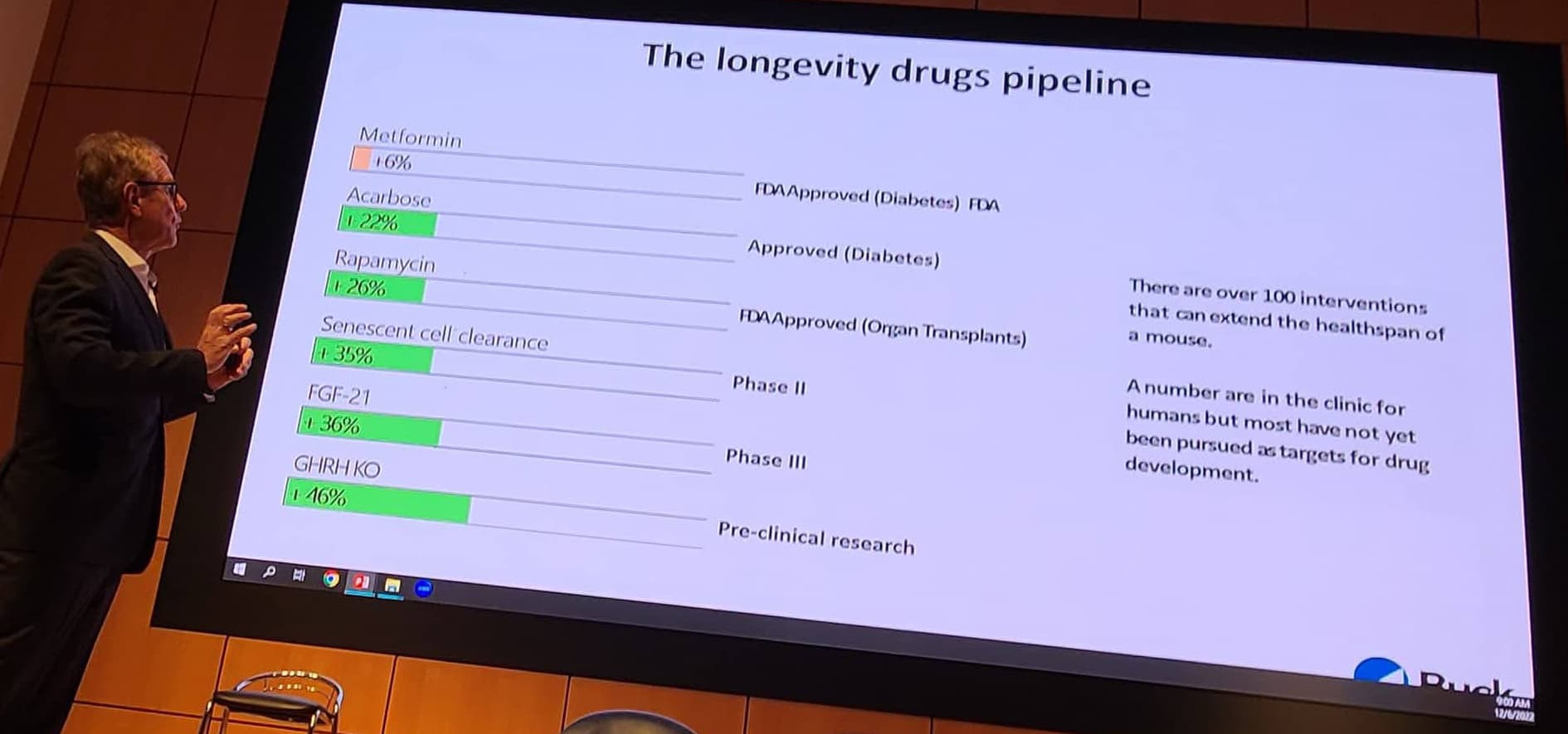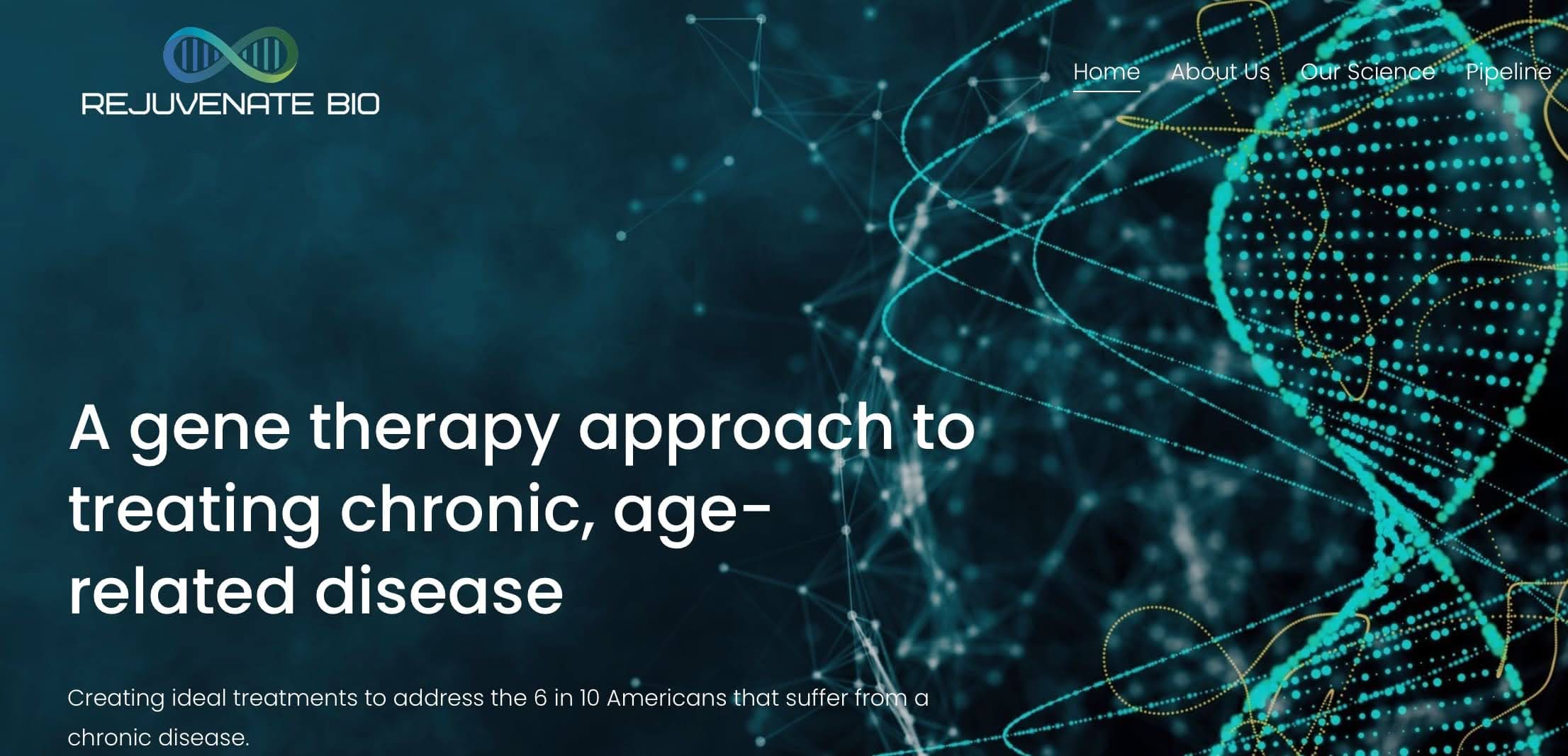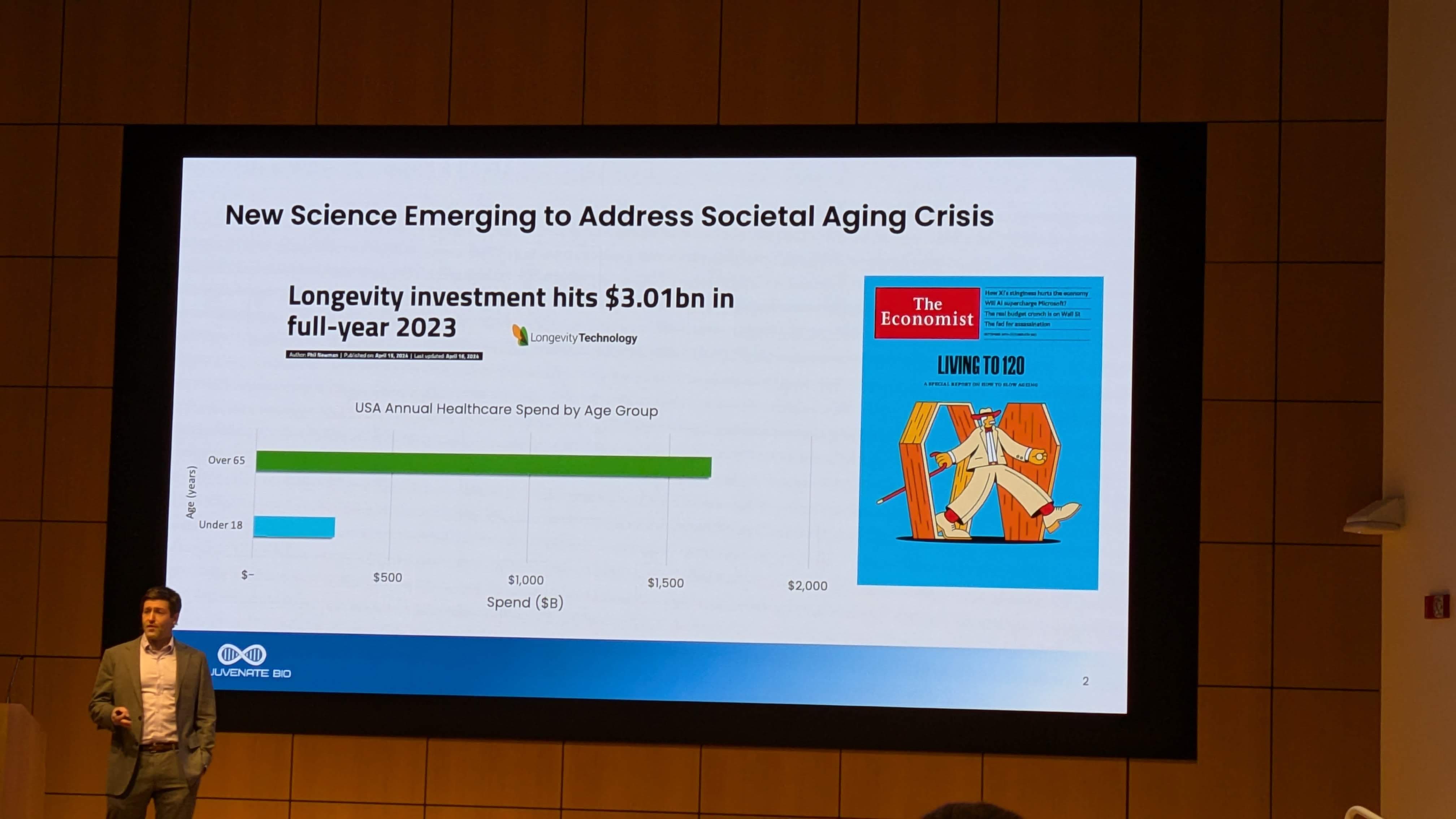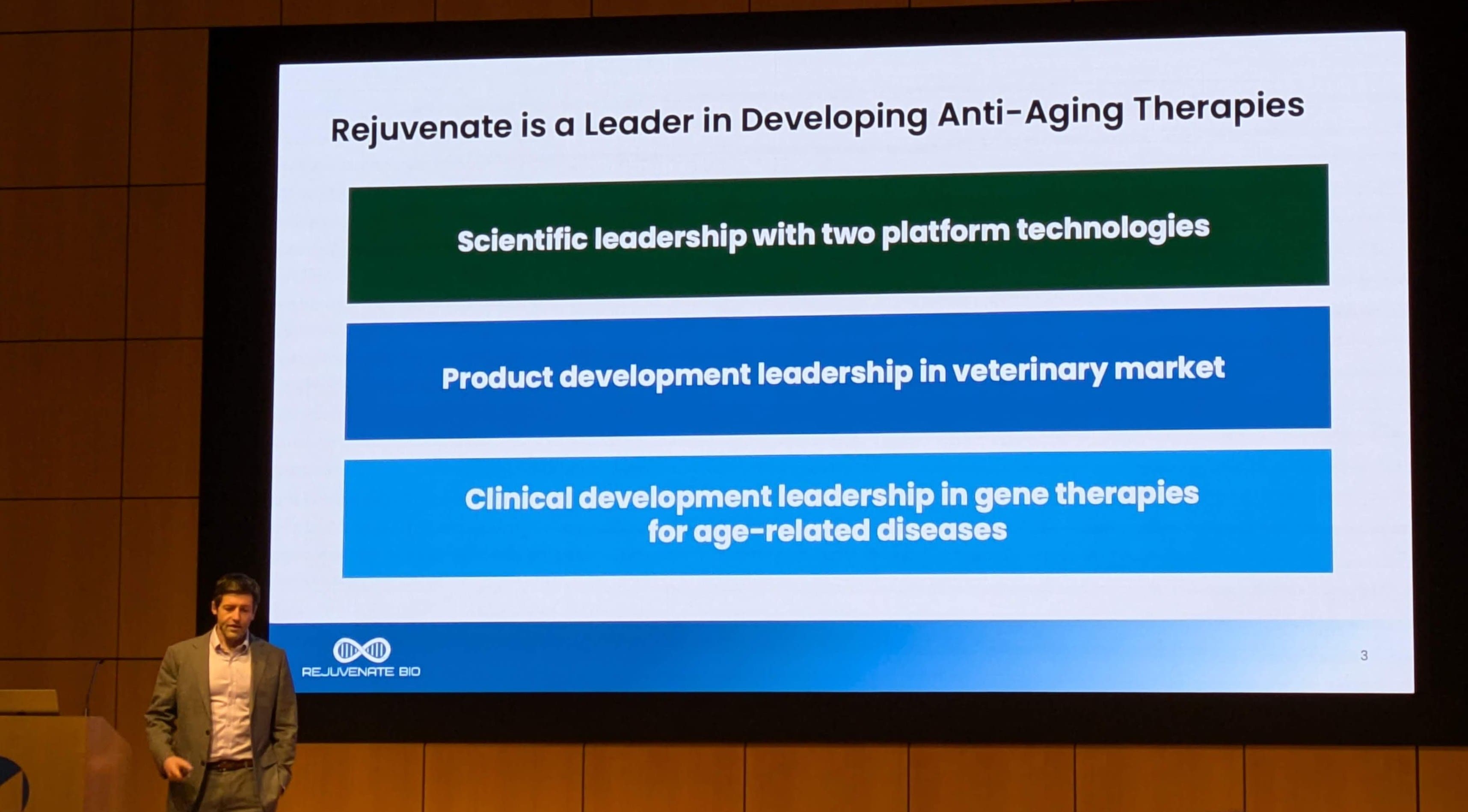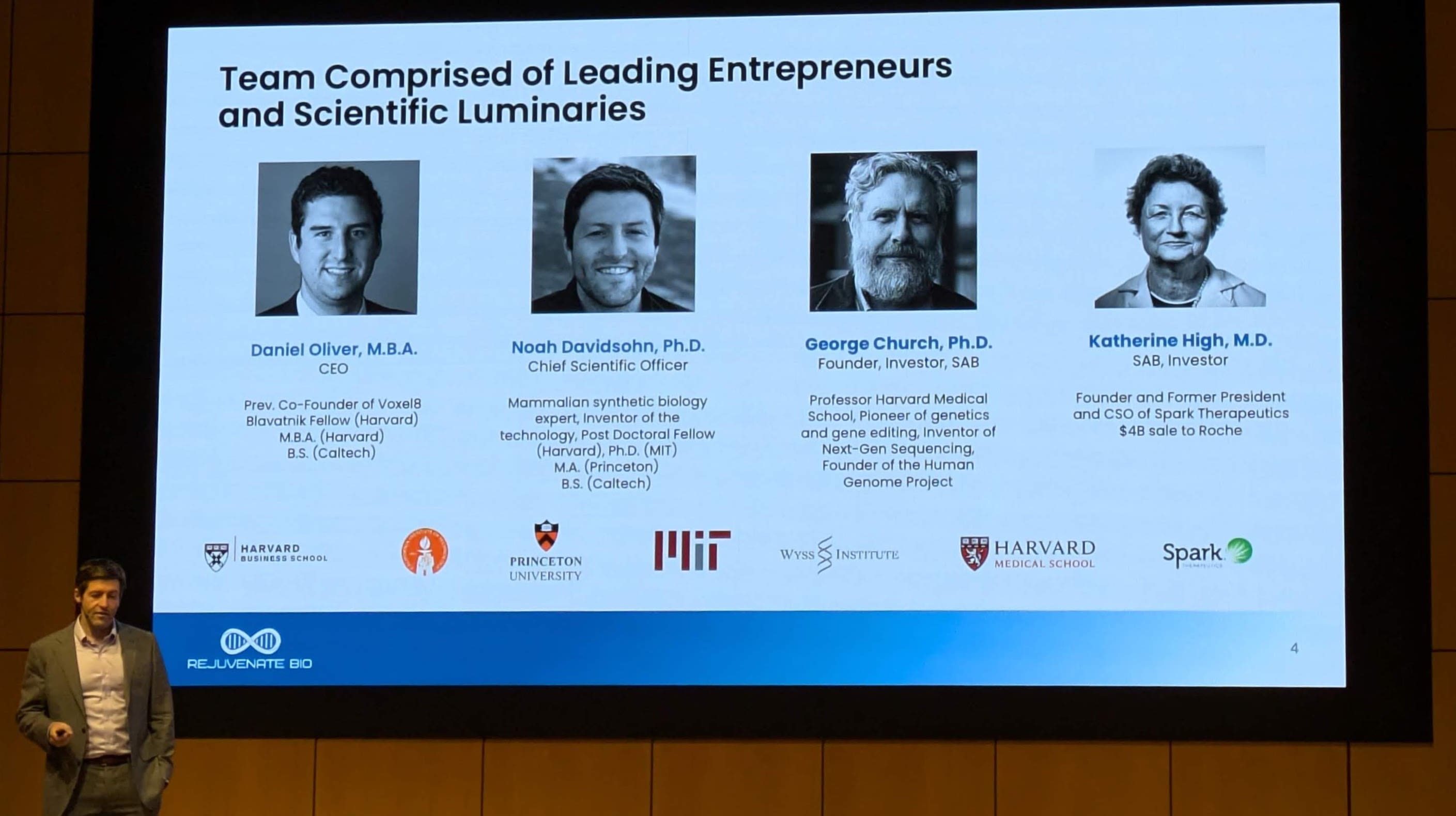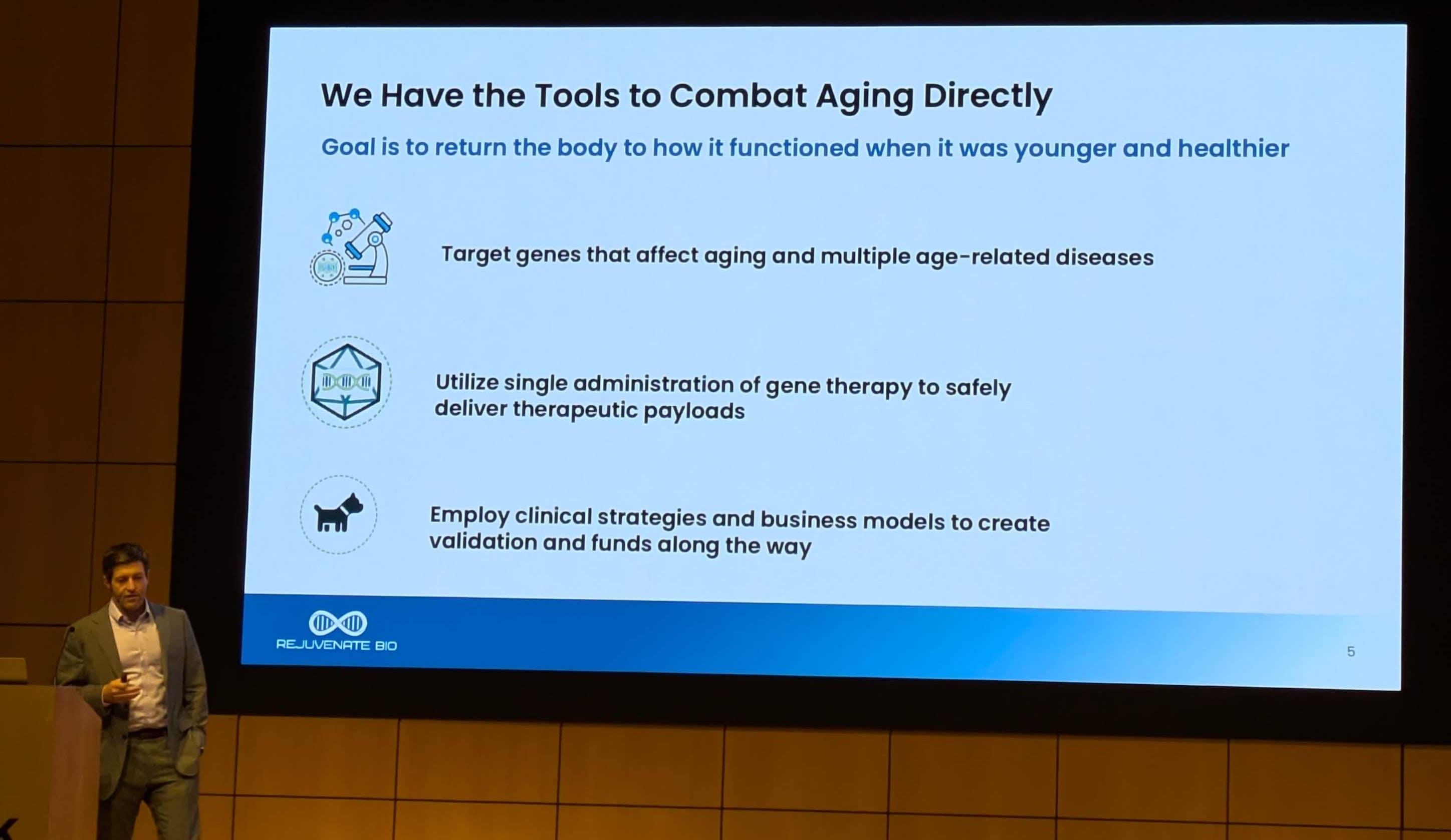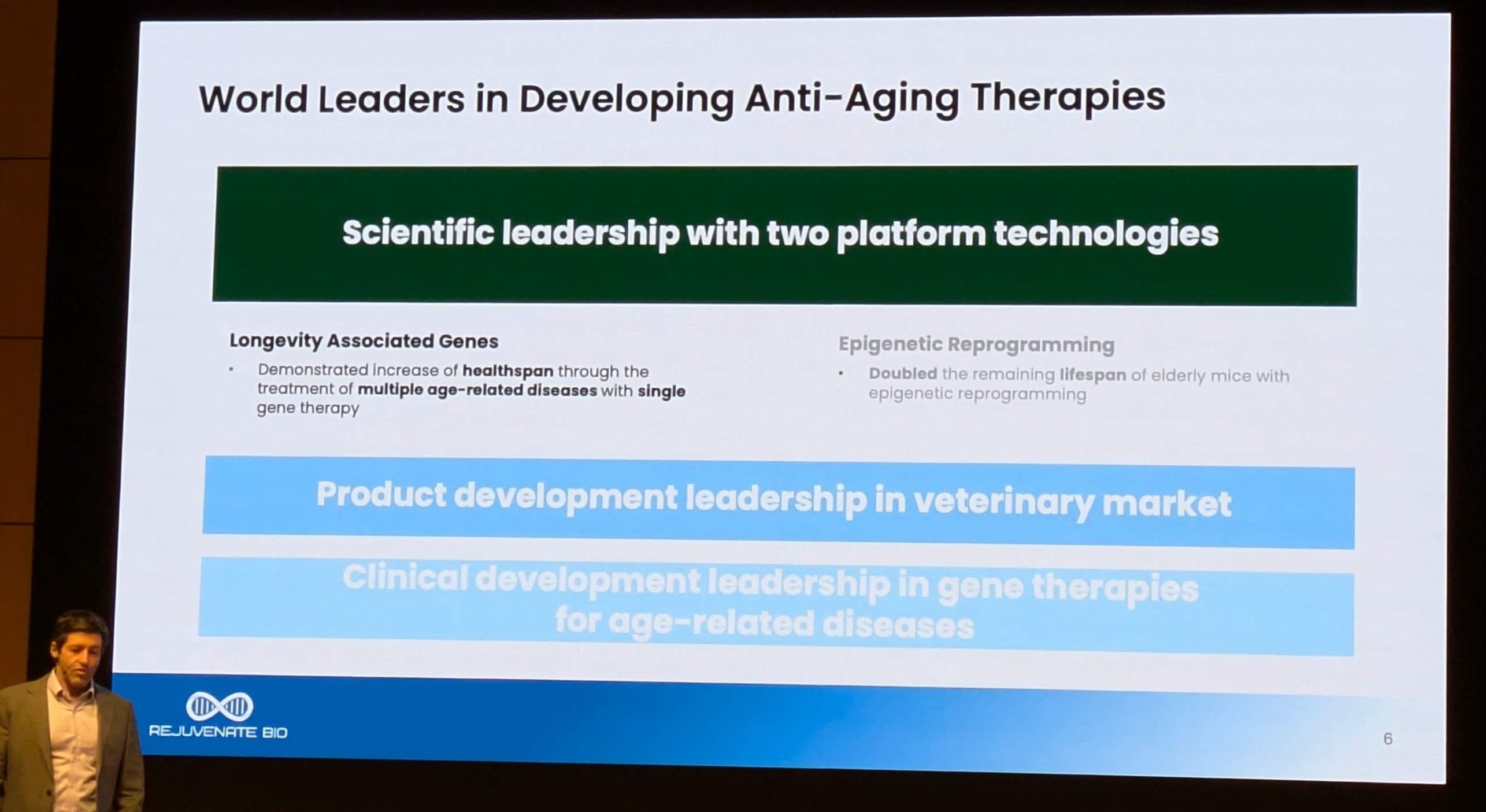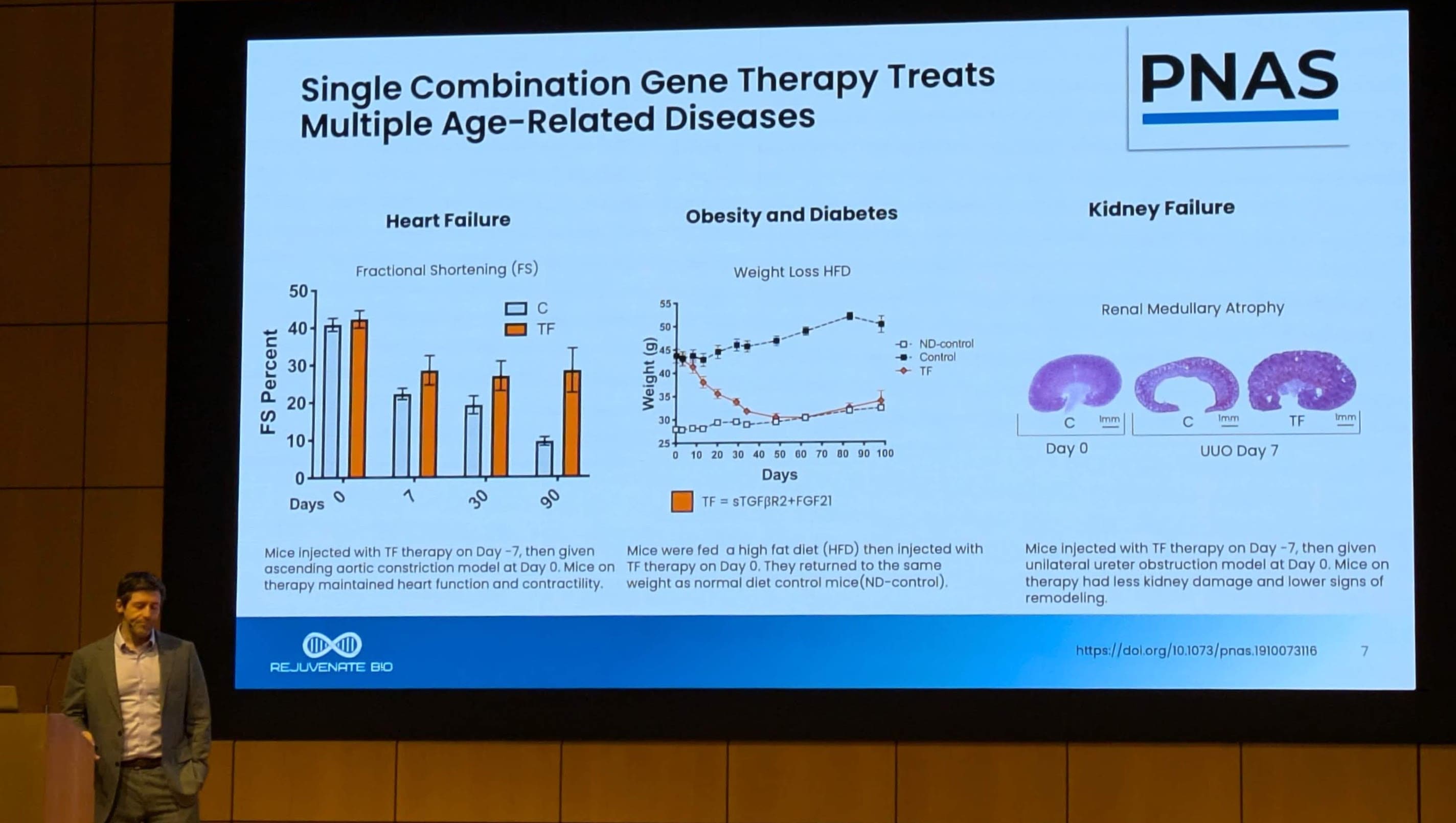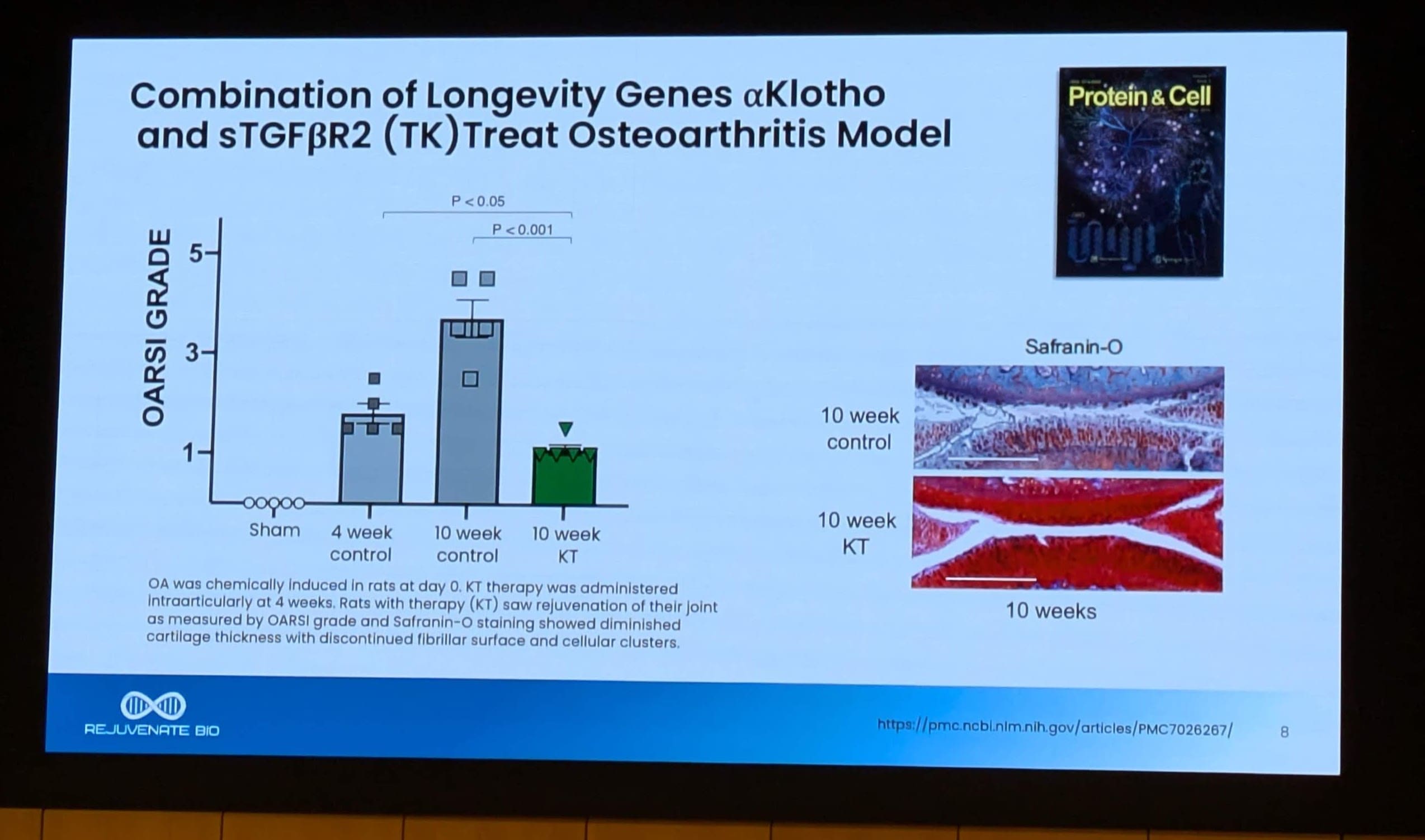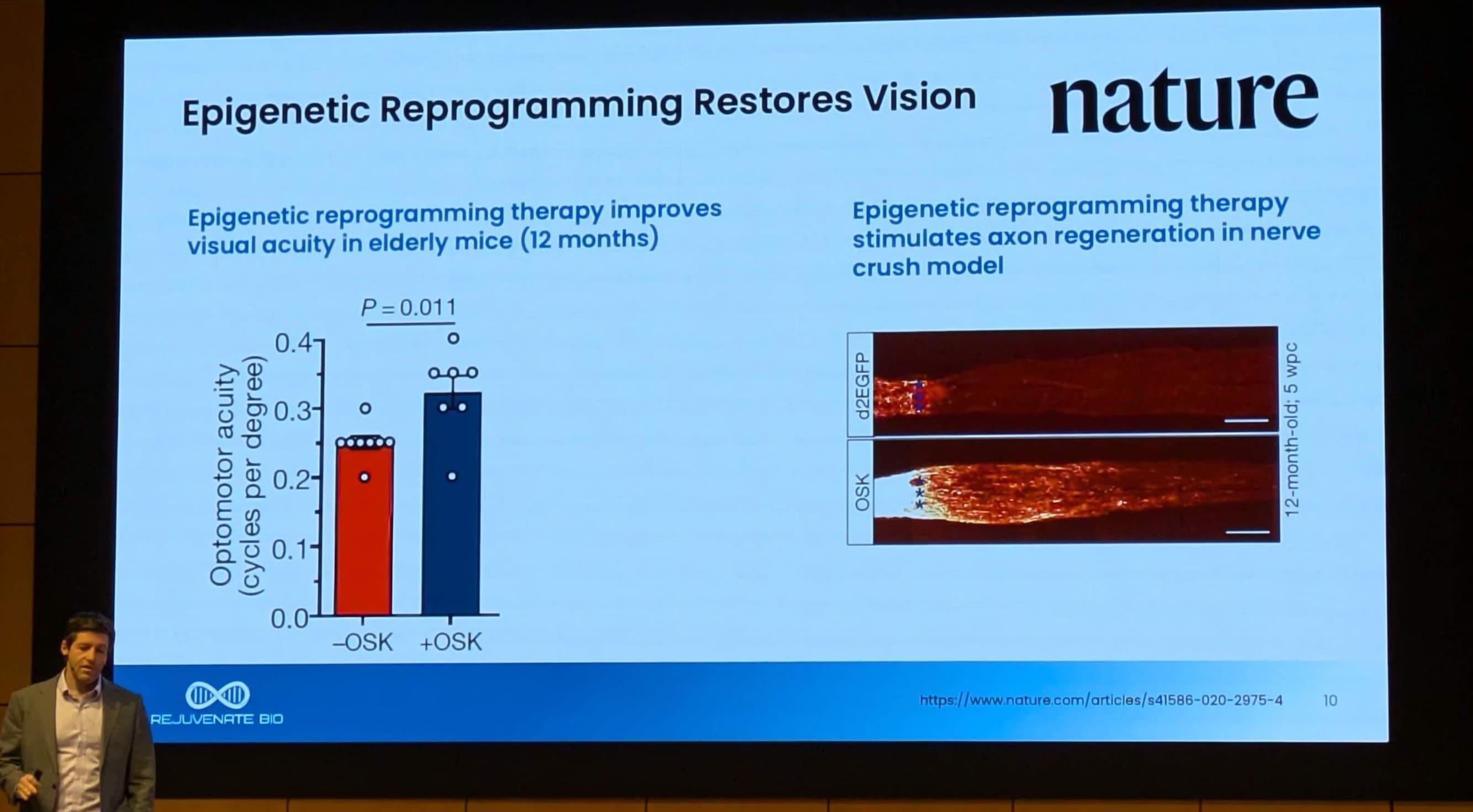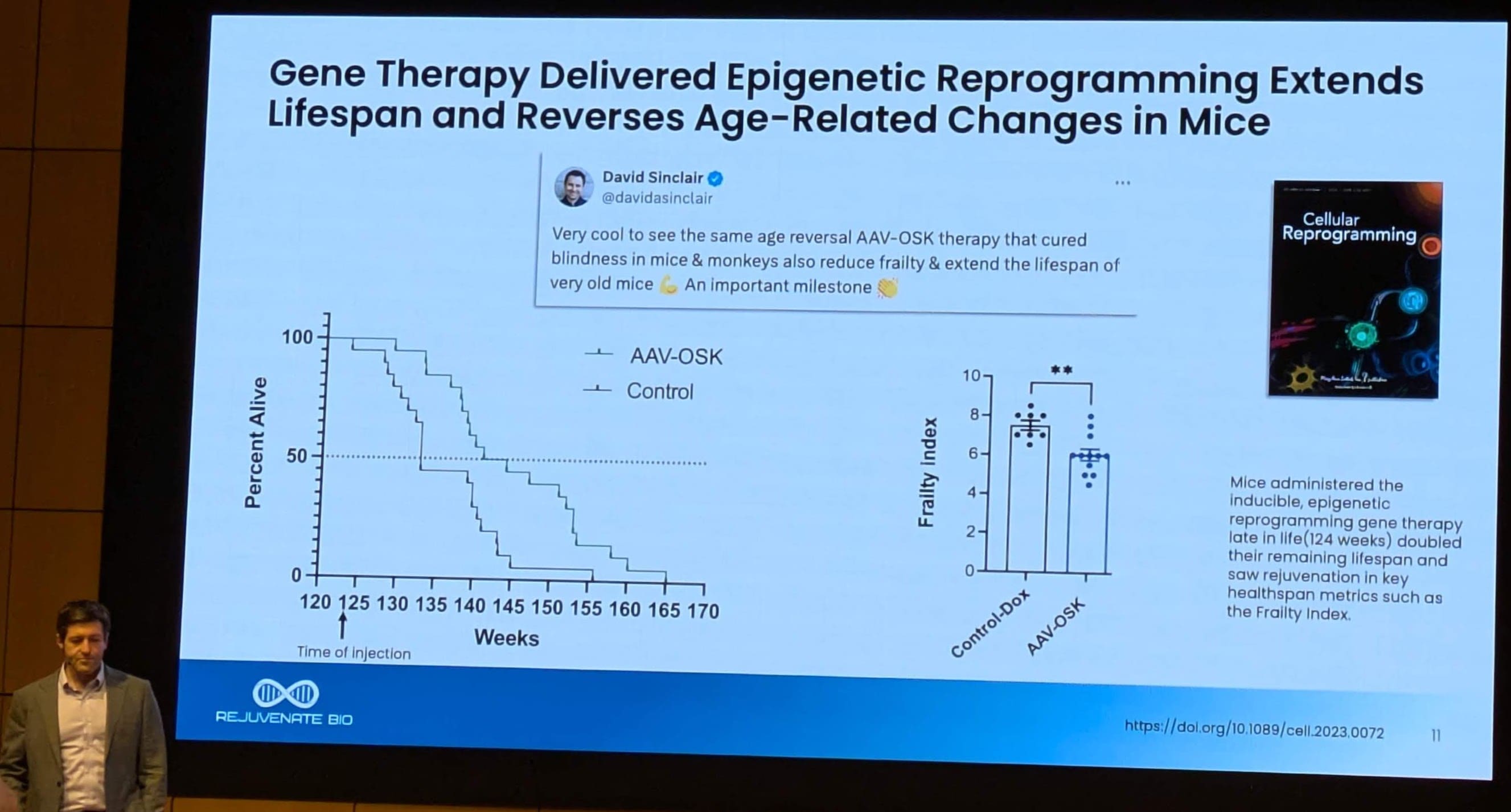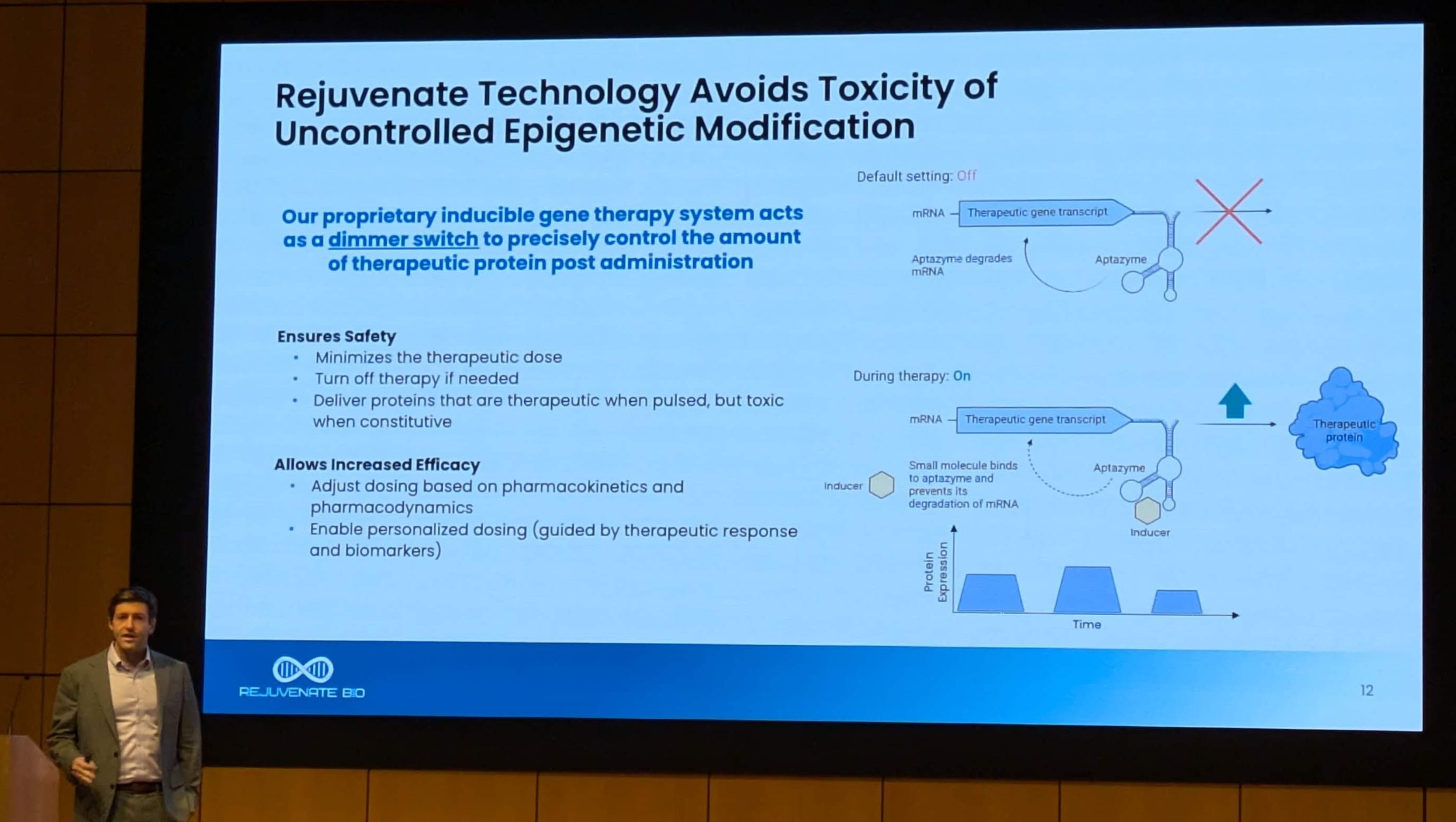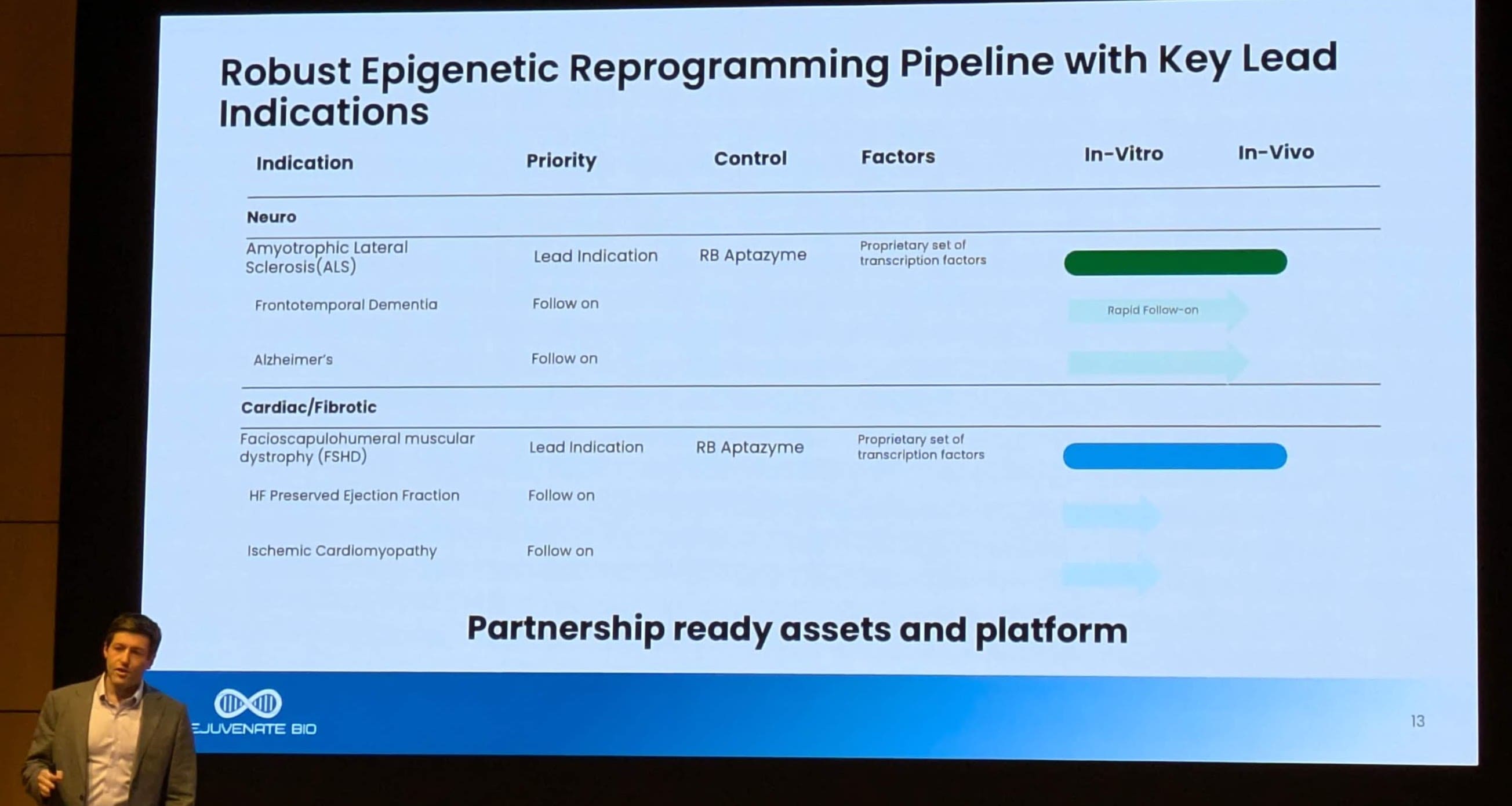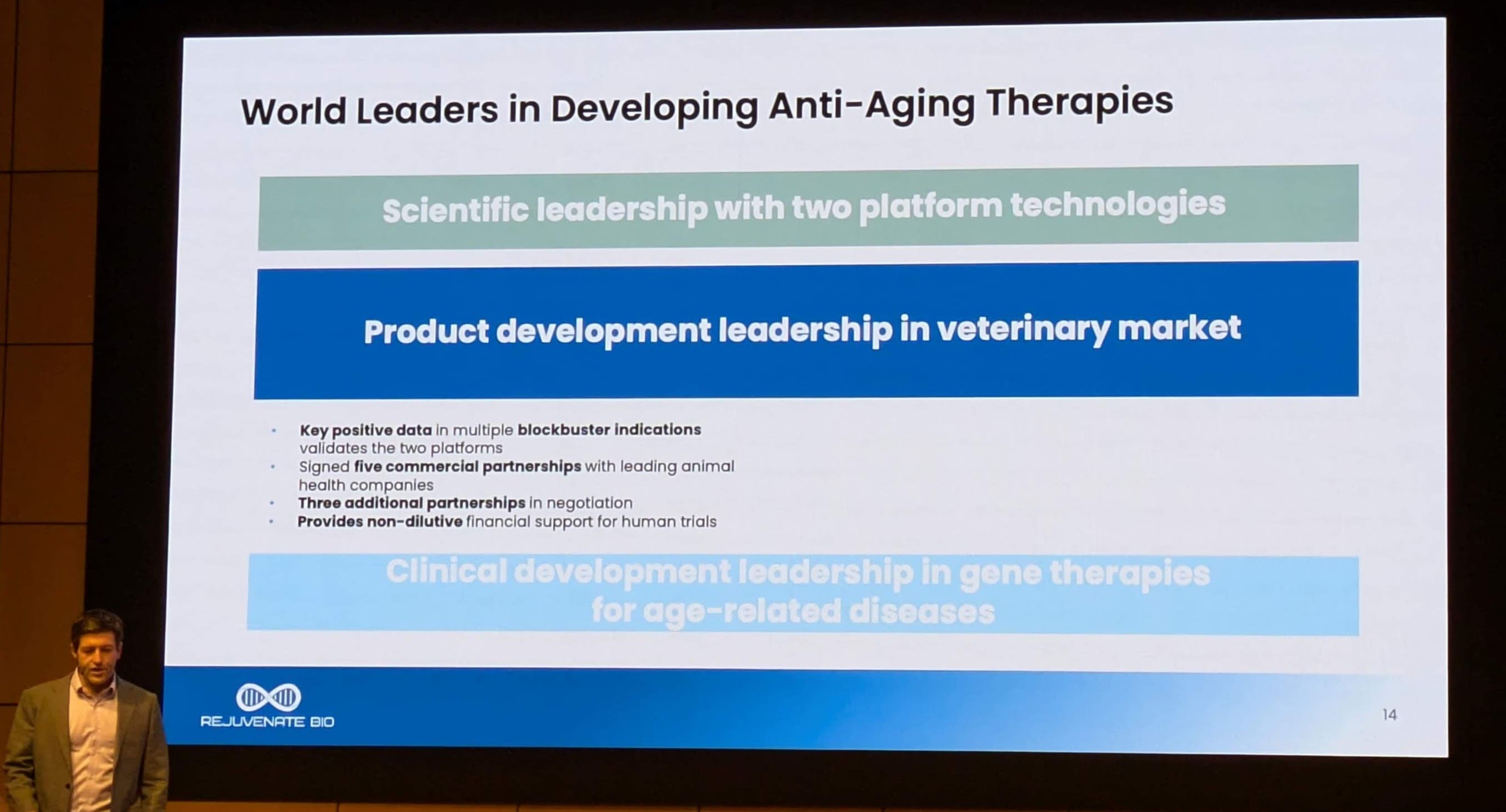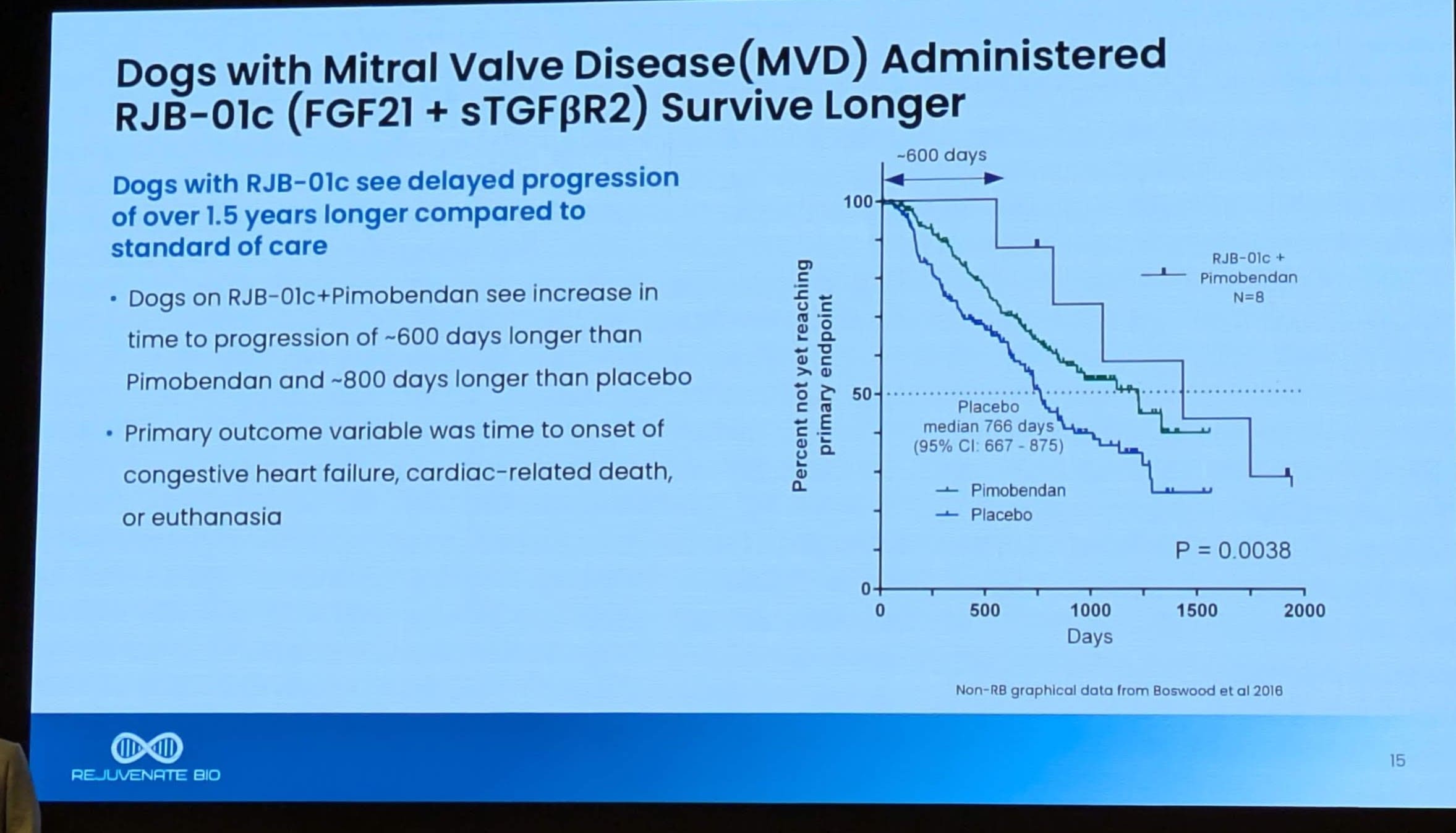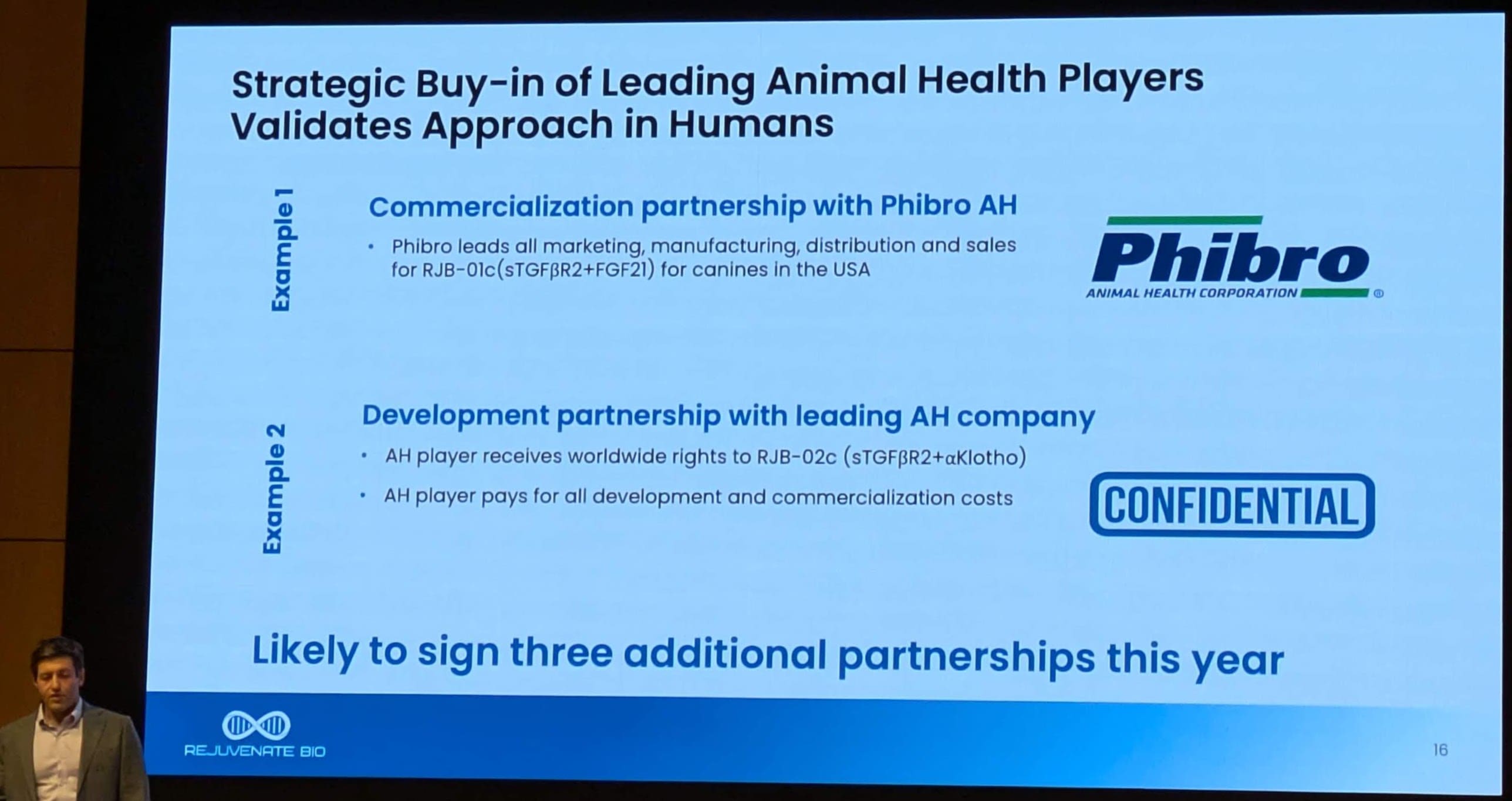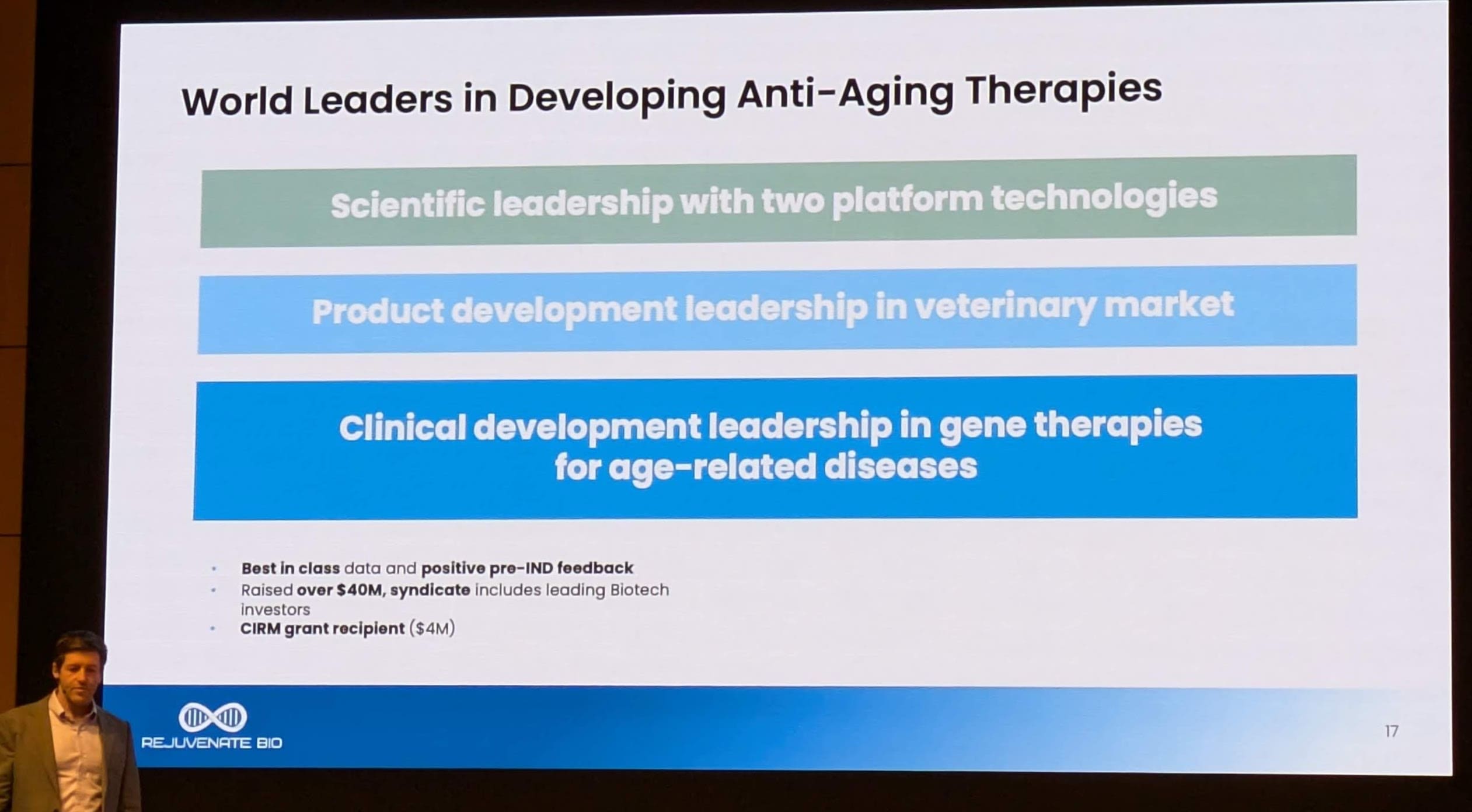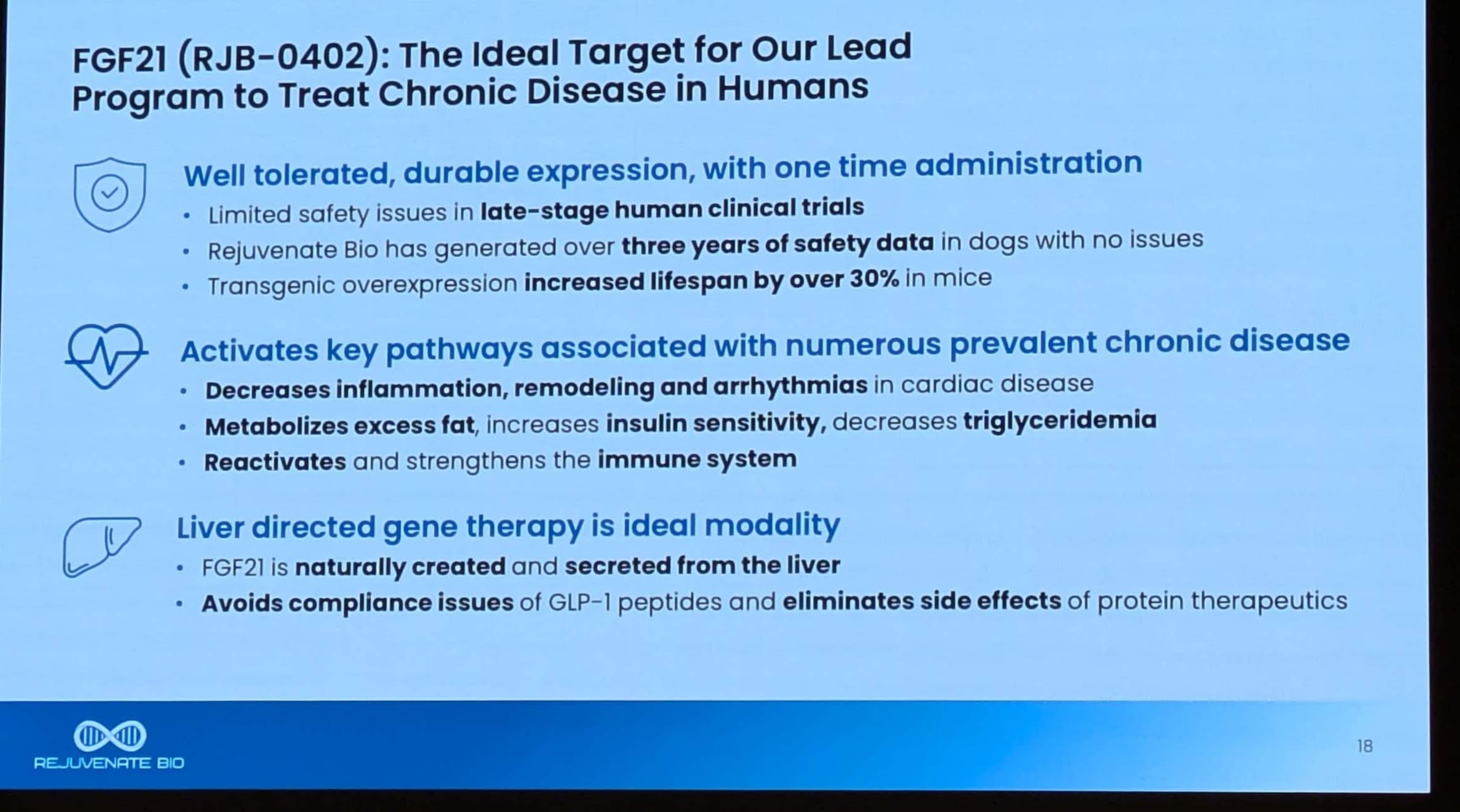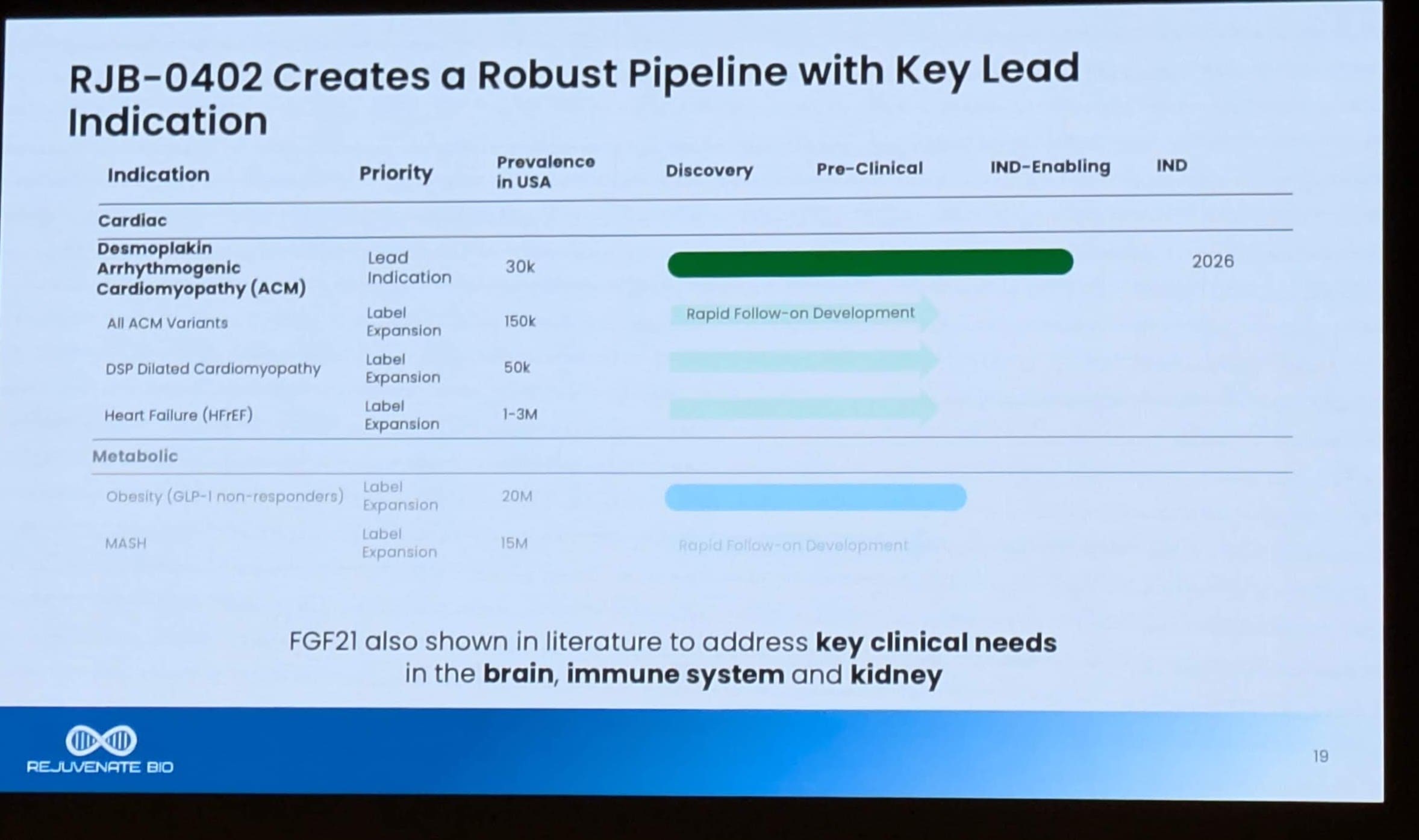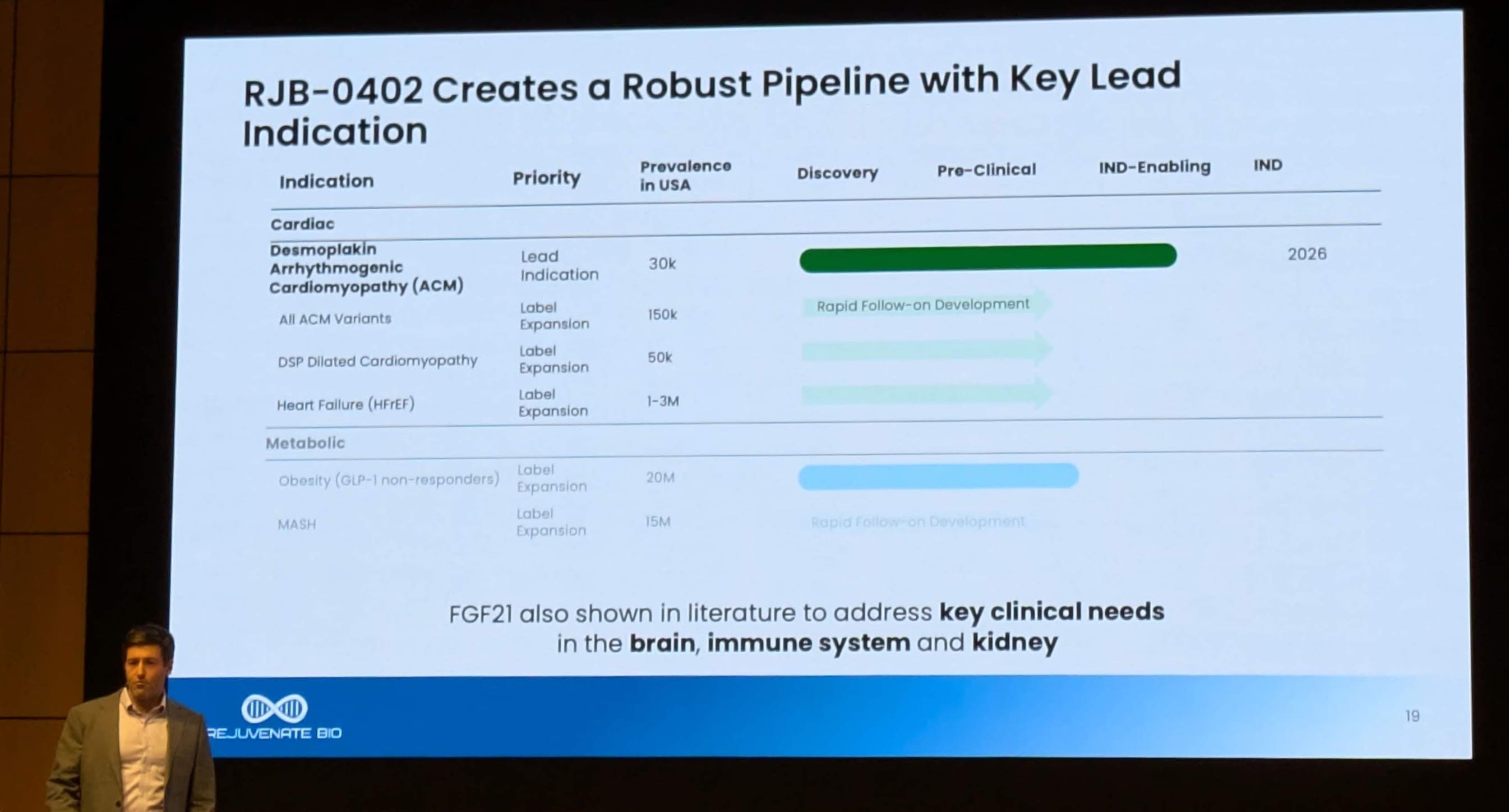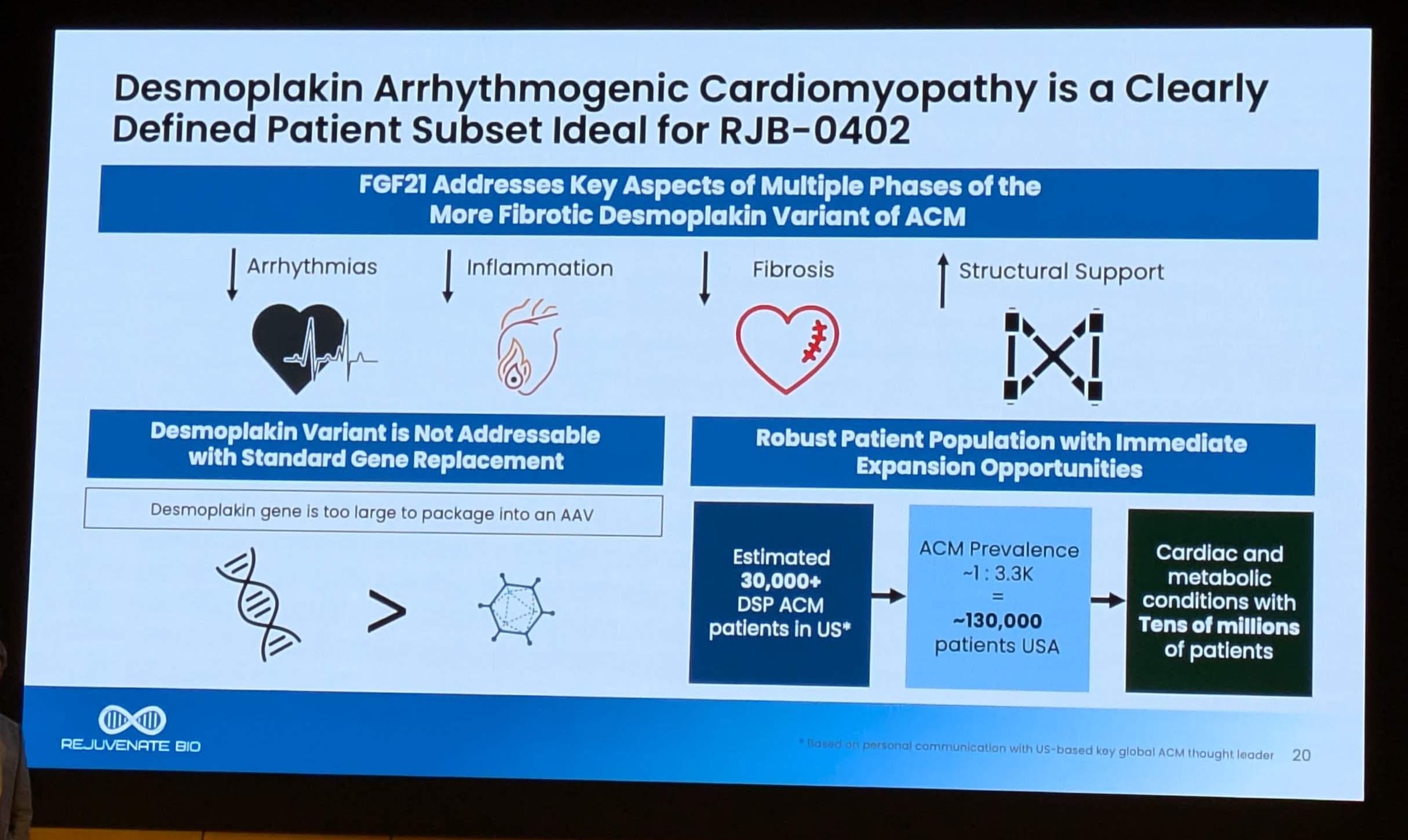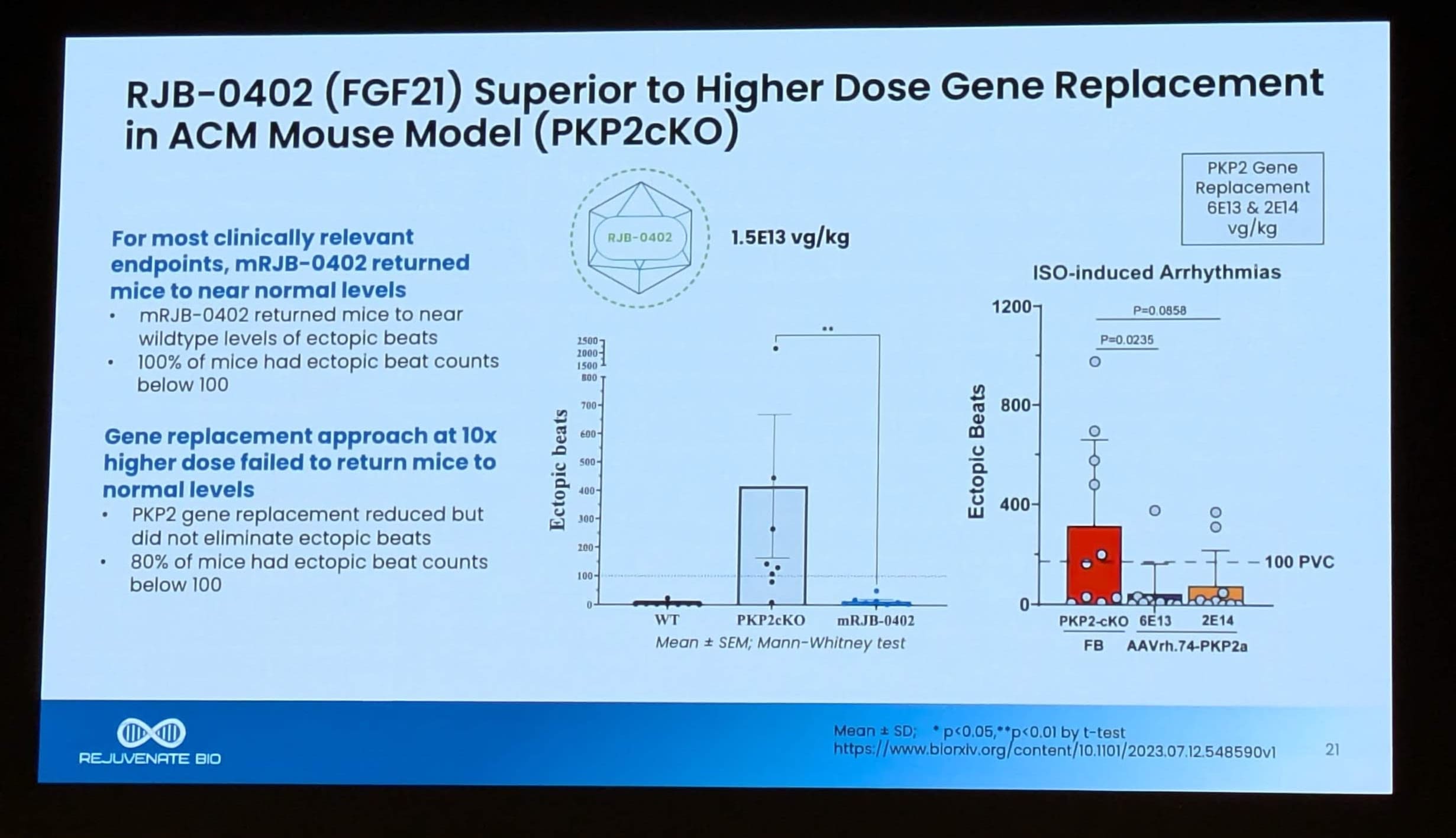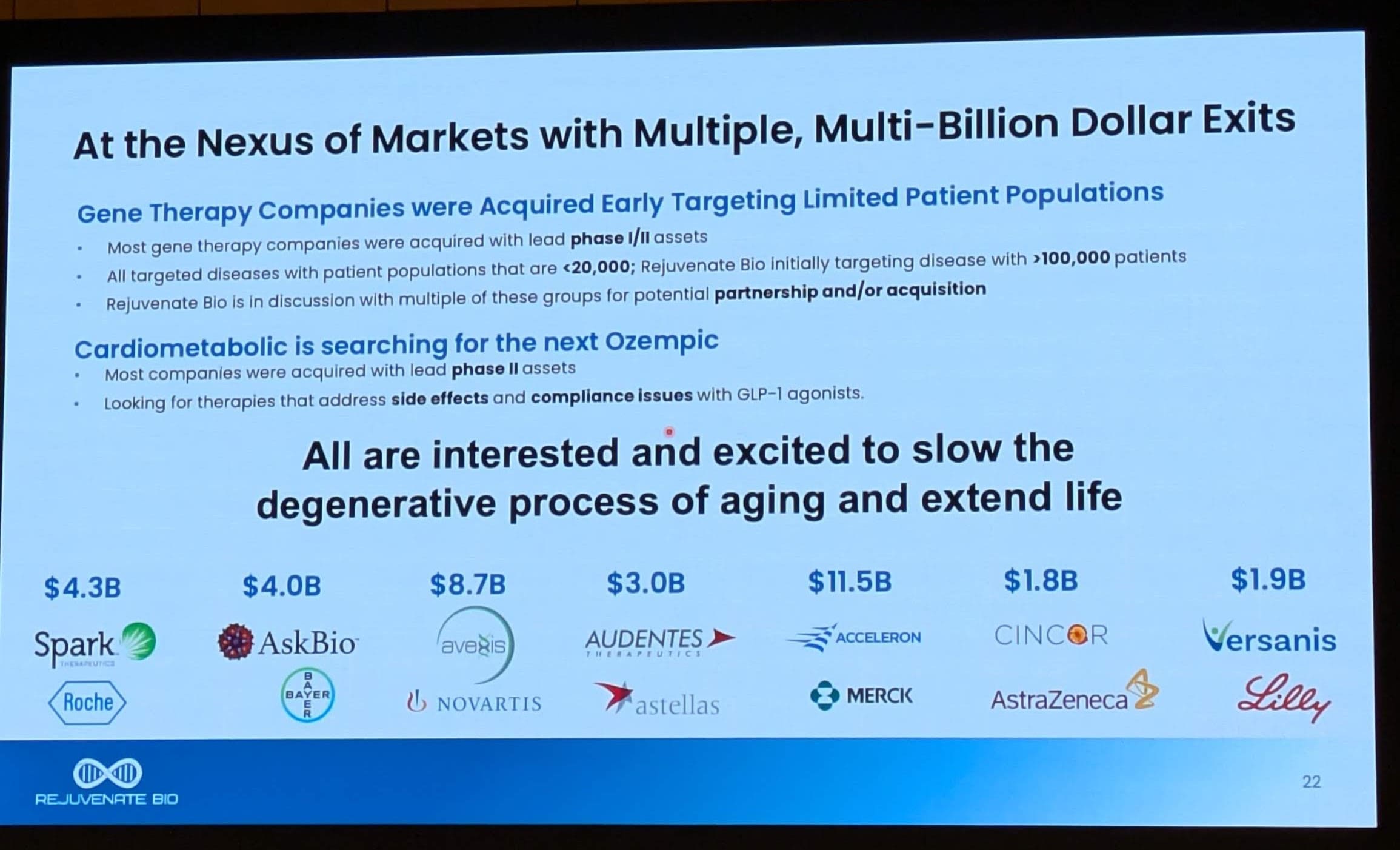In the past we’ve discussed fibroblast growth factor 21 (FGF21) as an extremely compelling target for longevity. Its a one of the best-performing therapeutic approaches, with up to 36% lifespan improvement (better than even rapamycin) in mice.
So I was very glad to have the opportunity to learn more about this company and their work and their schedules for commercialization, at last week’s Longevity Summit, a longevity biotech-focused conference at the Buck Institute that takes place every December.
(Click on image below to enlarge it)
I’ve wondered for years now why there was not more focus on FGF21 given its superior results in some longevity testing. I was wondering why nobody was seeking out or testing FGF21 promoters / activators,or analogs to FGF21, and why everything seems to be so quiet around this target in the longevity community. So, it was interesting to hear from Noah Davidson on his perspective.
Noah Davidson suggested that analogs to FGF21 have shown very poor results in testing, so don’t seem to be a viable avenue to productization (I’m not sure if this was from his own testing, or company testing, or some 3rd party’s results that he is reporting on).
We have discussed here FGF21, and also have posted a podcast / interview with Noah Davidson in the past (and I encourage you to read/listen to both of these if you want to learn more).
- Fibroblast growth factor 21 (FGF21) and Longevity
- Gene Therapies to Treat and Reverse Aging. Interview with Noah Davidsohn, Rejuvenate Bio (Translating Aging)
- Rejuvenate Bio Company Website: https://rejuvenatebio.com
But in last week’s presentation we got to see more on the progress they’ve made in this field. Interestingly, they are also taking an approach of targeting the pet / veterinary market first with a treatment for a medical condition in dogs, as a faster path to market and proof of concept of their approach. I think this could be an effective way to get to market faster, to prove to people the efficacy of their approach and move people’s opinions on longevity in a positive direction before introducing human therapies. Its very similar to the approach that Loyal for Dogs is doing with their dog longevity approach.
Here are some of the slides from Noah’s presentation this week. I think this is one of the most exciting startups in the longevity field. What do you think?
And the “exit opportunities” (financial return for investors) look good:
